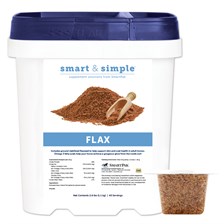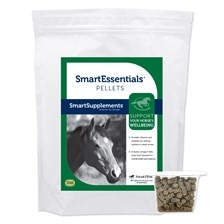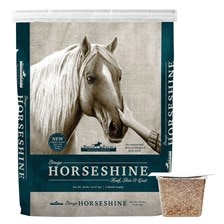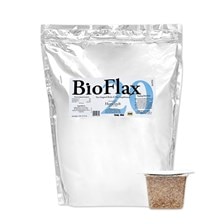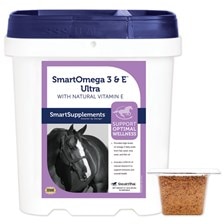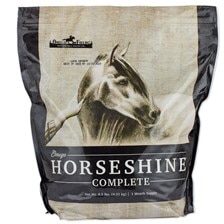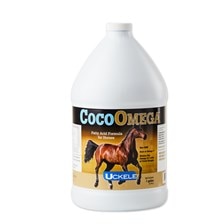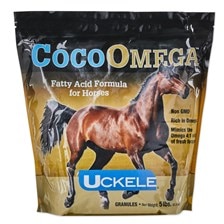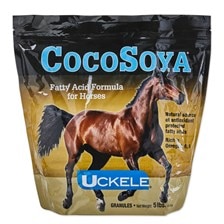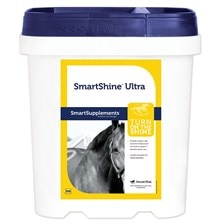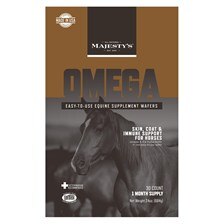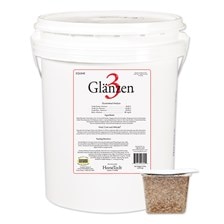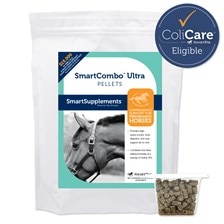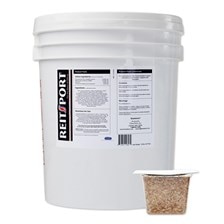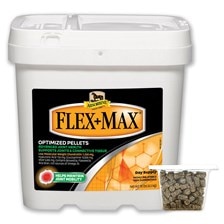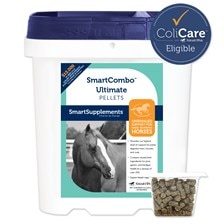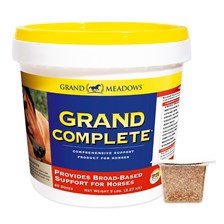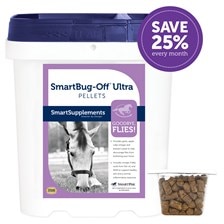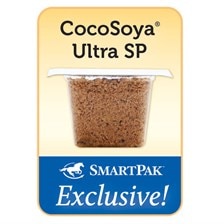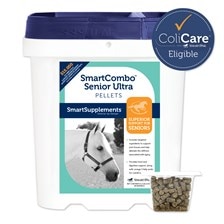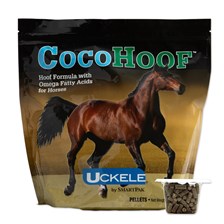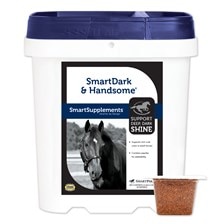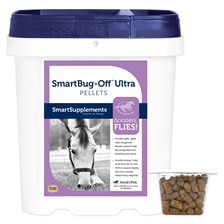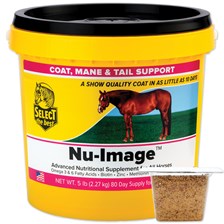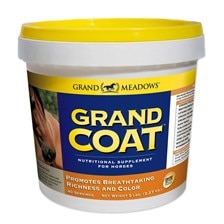Flax for Horses
Flaxseed is an annual plant that grows best in northern, cool climates, which explains why Canada is the largest producer of this crop in the world. The richest source of omega 3 fatty acids among plants, flaxseeds contain about 40% oil, 30% fiber, and 20% protein, in addition to vitamins, minerals, phytonutrients, and antioxidants. The benefits of flaxseed for horses include bringing the omega 3 to omega 6 ratio back into balance, weight gain, seasonal allergy support, skin and coat health, and overall wellness.
Sources and Bioavailability of Flaxseed for Horses
Although it is more convenient to feed flaxseed whole as it can be stored at room temperature for up to a year, whole seeds are likely to pass undigested through the horse’s intestinal tract because the hard outer hull resists the action of digestive enzymes. The best way to feed horses flaxseed is to grind it into a powder-like form just prior to use so that the nutrients are available but not inactivated by being exposed to the environment for too long. Better yet, ground (milled) flaxseed can be purchased that has been stabilized to prevent the fat from going rancid and the other nutrients from breaking down. Soaking or boiling of whole seeds is not necessary but is often done.
How Much Flaxseed to Feed Your Horse
Horses can be fed anywhere from 2 to 16 ounces (1 pound) of flaxseed per day depending on the desired results. It is very common to provide a mid-range amount of 1/2 to 1 cup of flaxseed (equivalent to 3 to 6 ounces) daily. When horses with recurrent seasonal pruritus (insect bite hypersensitivity to the Culicoides midge or “sweet itch”) were supplemented with 1 pound of ground flaxseed for 42 days, researchers at the University of Guelph in Ontario found no negative side-effects, an altered fatty acid profile of the hair, and a diminished allergic response from the skin*.
*Source: O'Neill W, McKee S, Clarke AF. Flaxseed (Linum usitatissimum) supplementation associated with reduced skin test lesional area in horses with Culicoides hypersensitivity. Can J Vet Res. 2002 Oct;66(4):272-7. PMID: 12418783; PMCID: PMC227015.
